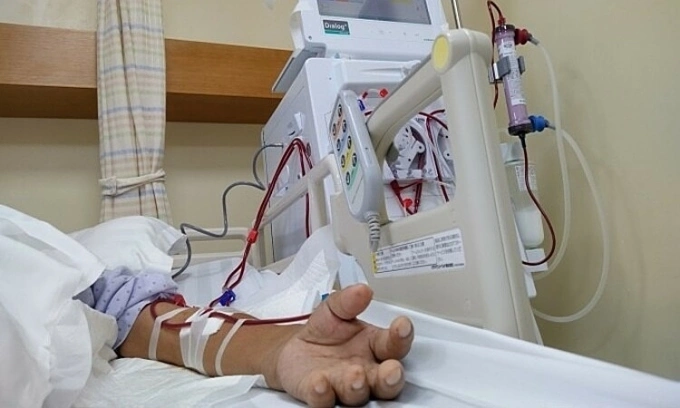Unhealthy Lifestyles Lead to Rise in Kidney Failure Among Young Vietnamese
A concerning trend is emerging in Vietnam, where an increasing number of young people are being diagnosed with end-stage kidney failure. This rise is largely attributed to unhealthy lifestyle choices and a lack of awareness about the risks associated with poor eating and sleeping habits.
The Silent Threat of Unhealthy Habits
Many young Vietnamese individuals are unknowingly putting their kidneys at risk. The dangers often go unnoticed until significant damage has occurred, leading to end-stage renal disease. This highlights the importance of understanding and addressing the factors contributing to this health crisis.
Key Contributing Factors:
- Poor Diet: Diets high in processed foods, salt, and sugar can place a significant strain on the kidneys.
- Inadequate Sleep: Chronic sleep deprivation can disrupt kidney function and contribute to inflammation.
- Lack of Exercise: A sedentary lifestyle is linked to various health problems, including kidney disease.
- Insufficient Hydration: Not drinking enough water can impair the kidneys’ ability to filter waste effectively.
Raising Awareness and Promoting Prevention
Combating this growing health issue requires a multi-faceted approach. Public health campaigns are crucial for raising awareness about the importance of healthy lifestyle choices. Education on proper nutrition, the benefits of regular exercise, and the need for sufficient sleep can empower young people to make informed decisions about their health.
Steps to Protect Kidney Health:
- Adopt a balanced diet rich in fruits, vegetables, and whole grains.
- Limit processed foods, salt, and sugar intake.
- Aim for at least 7-8 hours of quality sleep each night.
- Engage in regular physical activity.
- Stay adequately hydrated by drinking plenty of water.
- Undergo regular check-ups to monitor kidney function, especially if you have risk factors such as diabetes or high blood pressure.
The Role of Early Detection
Early detection of kidney problems is crucial for preventing the progression to end-stage renal disease. Regular medical check-ups, including urine and blood tests, can help identify kidney issues in their early stages when they are more easily managed. Individuals with risk factors should be particularly vigilant about monitoring their kidney health.
Final Overview
The rise in kidney failure among young Vietnamese is a serious concern that demands immediate attention. By promoting healthy lifestyles, raising awareness about the risks of unhealthy habits, and emphasizing the importance of early detection, it is possible to reverse this alarming trend and protect the kidney health of future generations.




+ There are no comments
Add yours